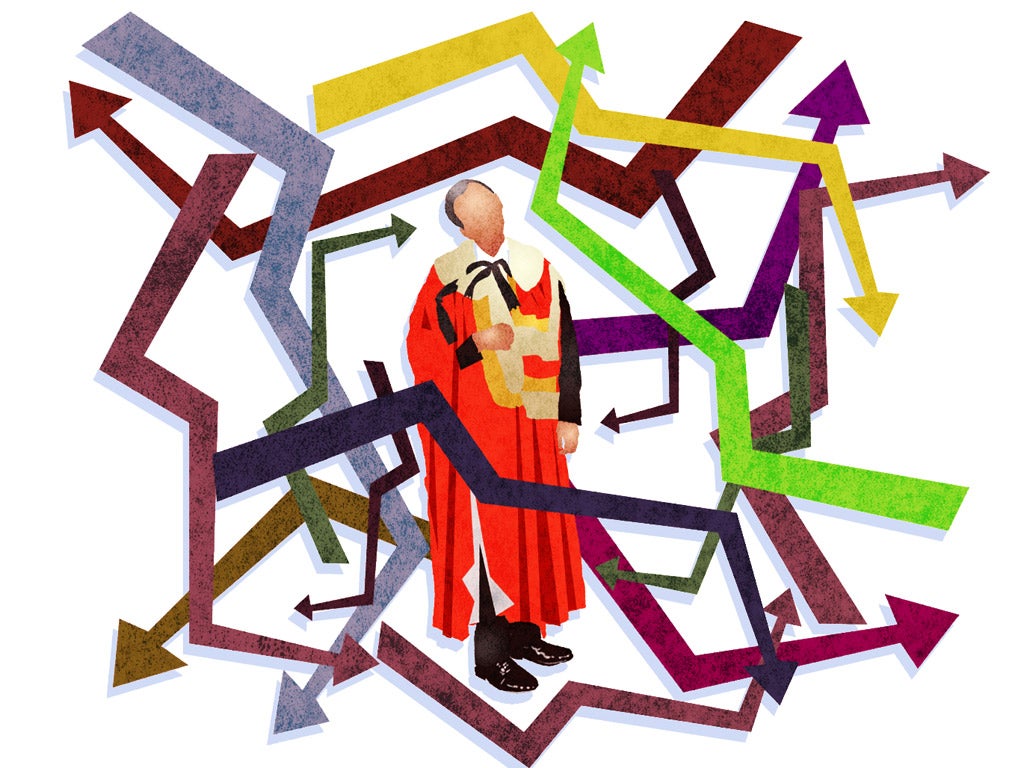Mary Ann Sieghart: Clegg needs to find an exit route from Lords reform
It’s not as if the Lords perform badly. They have been doing a fine job recently


What is the problem to which this is the solution? It's a question that all politicians should ask themselves before they embark on reform. David Cameron and Andrew Lansley should have asked it before turning the NHS upside down. Nick Clegg should be asking it now before putting the Coalition at risk for a piece of legislation that ranks at zero in voters' priorities.
A year ago, I wrote that reform of the House of Lords was going to lead to huge political rows and would backfire on the Liberal Democrat leader. Nothing has changed, except that the political rows have started. At an explosive meeting of the Tories' 1922 committee last week, 35 MPs – including many formerly loyal ones – stood up to denounce the idea. Today, the joint committee set up to report on the Government's draft Bill will publish its findings and the "No" campaign will instantly leap into action.
I hear that 12 members of the joint committee – nine peers and three MPs (the Tories Oliver Heald and Eleanor Laing, and Labour's Tom Clarke) – will hold a rival press conference this morning to publish an alternative report. It will call for a constitutional convention to take a much wider look at the make-up and powers of Parliament as a whole before deciding on the composition of the Lords. The rules governing committee reports don't allow minority disagreement, so these members, who make up only just under half the committee, feel they have no choice but to go freelance.
Cameron and Clegg won't be able to shrug off this dissent. For it will have resonance with many MPs, who worry that an elected House of Lords would challenge the Commons' primacy, weakening any government and leading to gridlock. Tory MPs are also worried about the Coalition using up aeons of parliamentary time on a subject that couldn't seem more remote from voters' troubled lives. And they ask, quite rightly, what's the problem to which this is the solution?
Clegg and his allies have no answer. It's not as if the Lords perform badly; they have been doing a fine job recently of holding the government to account. The House is cheap, its members have far more authority and expertise than most MPs, and would mainly be lost if the Lords were to be elected. Can you imagine the likes of Baroness Warnock or Lord Winston tramping around delivering leaflets?
Those who would stand for election are of a different calibre. There's a tiny pool of people who are prepared to put themselves up for election. The best of them aim for the Commons, and the second best for the European Parliament or the devolved assemblies. Soon there will be elected police commissioners and city mayors too. Only the dregs would go for the House of Lords, with its limited term and lower salary.
Clegg says he wants more democracy, but doesn't explain why. If his aim is to make the Lords more accountable, he is going about it the wrong way – as even today's joint committee report will say. Under his proposal for a single 15-year term, the new Lords will have no incentive to keep faith with the voters, as they will never stand for re-election. As one committee member put it to me: "This is complete nonsense and it doesn't stand up. It's all been done for show."
The report will also cast scorn on his claim that – even if the Lords are elected – the House of Commons' powers will remain unchallenged. Not a single person giving evidence agreed that the Commons could be unaffected by an elected Lords. Clegg seems to think that simply asserting the primacy of the Commons will make it so. He's either naive or disingenuous. One sceptical Cabinet minister explains: "A lot of people think Lords reform is about the House of Lords. It isn't – it's about the House of Commons."
Finally, the committee's members recommend a referendum before such a huge constitutional change is put into effect. "If you can have a referendum for the Mayor of Leeds, you ought to have a referendum if one House is being given permission to abolish the other," one told me yesterday.
A referendum would go some way towards mollifying the Bill's Tory critics, though Clegg the democrat is against it. His excuse is that Lords reform was in all three parties' manifestos. Yet it didn't form any part of the election campaign and can barely have influenced a single vote.
Clegg is probably scared that, as with the AV referendum last year, he would lose. That may be true. If you ask people, "Do you want your lawmakers elected?" they are likely to say yes. But if you ask them, "Do you want more elected politicians?" they are likely to say no.
If Clegg and Cameron were realistic, they would concede now that Lords reform has little chance of coming into force. If it isn't voted down in the Commons by a coalition of backbench Tories and Labour (who can oppose the Bill on the ground that it doesn't offer a referendum), then it will certainly be defeated in the Lords. The Commons could then only push it through by using the Parliament Act. That would require another Commons vote, which would be unlikely to pass.
It would also require serious leadership from the Prime Minister. Why would he expend sizeable political capital, from reserves which are dwindling fast, on bullying his party to support a Bill which is about No 297 in his list of priorities and won't win him a single extra vote in the country? If anything, it will lose him electoral support as voters see his party and the Lib Dems obsessing over an issue that has no bearing on their struggle to make ends meet.
Here is a solution, which would be better for both parties. Allow peers to be elected by their peers, to shrink the size of the House and weed out the doddery and the lazy. Chuck out any with criminal records. Reduce the patronage power of party leaders. Make the hereditaries compete for places with other peers. Then Clegg can say that he has reformed the House of Lords – and he and Cameron can get on with running the country.

Join our commenting forum
Join thought-provoking conversations, follow other Independent readers and see their replies